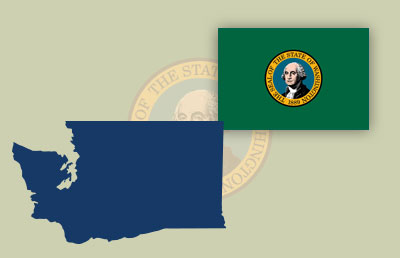Washington Modifies Fees and other Provisions of its Consumer Loan Act

Washington Temporarily Waives Certain Fees under its Consumer Loan Act
In a letter dated July 25, 2018, the Washington Department of Financial Institutions, Division of Consumer Services notified licensees under the Consumer Loan Act that, pursuant to its authority under WAC 208-620-650, it will temporarily waive some fees in part and other fees entirely.
Effective July 1, 2018 through December 31, 2019, the Department has waived hourly fees charged for consumer loan company examinations, excepting travel expenses related to the examination.
For the remainder of 2018, the Department has waived fees for the assessment of the following: residential mortgage loans in portfolio on December 31, 2017, residential mortgage loans brokered in 2018, and residential mortgage loans purchased in 2018.
Additionally, Mortgage Loan Originator renewal fees have been reduced from $155 to $75 for the 2019 calendar year.
Washington Modifies Provisions Relating to Mortgage Servicing under its Consumer Loan Act
The Washington Department of Financial Institutions has adopted new provisions under its Consumer Loan Act. In addition to technical and readability changes, the new provisions help to clarify the roles of parties investing in, owning, and servicing residential mortgage loans. Additionally, the new provisions clarify what residential mortgage loan servicing activities can be conducted outside of the United States.
Under its rule making order the following definitions have been modified for clarity:
“Individual servicing a residential mortgage loan” means a person who on behalf of a lender or servicer licensed or exempt from licensing in this state: Collects or attempts to collect payments on existing obligations due and owing to the licensed or exempt lender or servicer, including payments of principal, interest, escrow amounts, and other amounts due; works with borrowers to collect data and make decisions necessary to modify either temporarily or permanently terms of the obligations; or otherwise finalizes collection through the foreclosure process. For the purpose of this definition “on behalf of a lender or servicer” means that the individual person is employed by the lender or servicer and does not receive any compensation or gain directly or indirectly from borrowers for performing the described activities. (WAC 208-620-11(2))
“Servicer.” Persons directly engaged in servicing. (WAC 208-620-11(5)(b)(i))
“Master servicer.” Persons responsible for ongoing servicing administration either by directly servicing or through servicing agreements with licensed or exempt subservicers. Except that the director may issue a license waiver to a master servicer servicing or administrating the servicing of fewer than twenty-five loans. (WAC 208-620-11(5)(b)(ii))
“Subservicer.” Persons directly servicing pursuant to a servicing agreement with a master servicer. (WAC 208-620-11(5)(b)(iii))
WAC 208-620-530 adds a provision relating to the maintenance of records electronically. Under the new provisions, a cloud service may be used for records maintenance; however, the servers used to store the records must be located in the United States or its territories.
WAC 208-620-553 prohibits certain loan servicing activities outside of the United States including: receiving payments and maintaining of payment records, collection activities, and communications with consumers. Activities that may be conducted outside of the United States include: data entry, document review, recommendation for action, records searches, and analysis of credit disputes and escrow accounts.
These provisions take effect September 1, 2018 and may be found in their entirety at: https://dfi.wa.gov/sites/default/files/cla-adopted-rules.pdf
Adam Faria, JD, is a regulatory compliance consultant with CLA. He is a graduate of Northeastern University and earned his juris doctor at Suffolk University Law School. He is admitted to the bar in Massachusetts and New Hampshire.

Comments are closed.